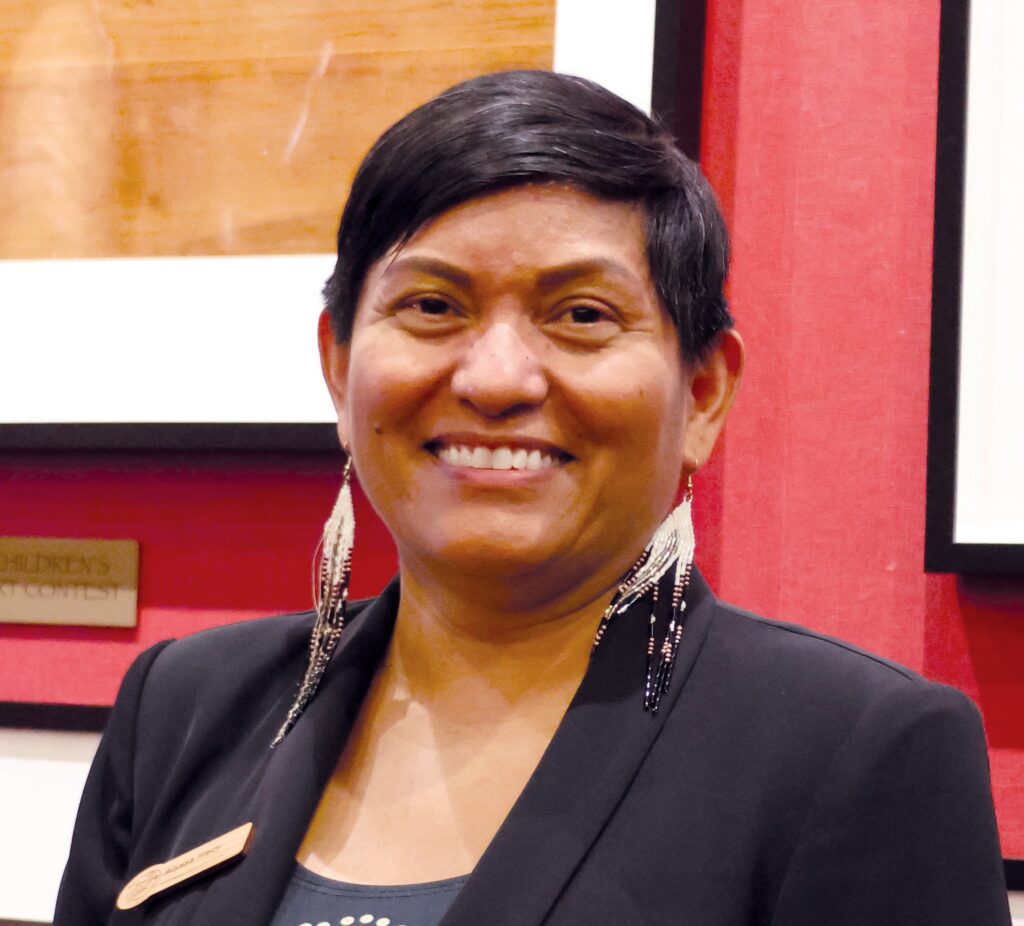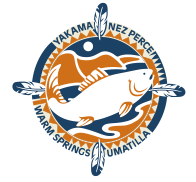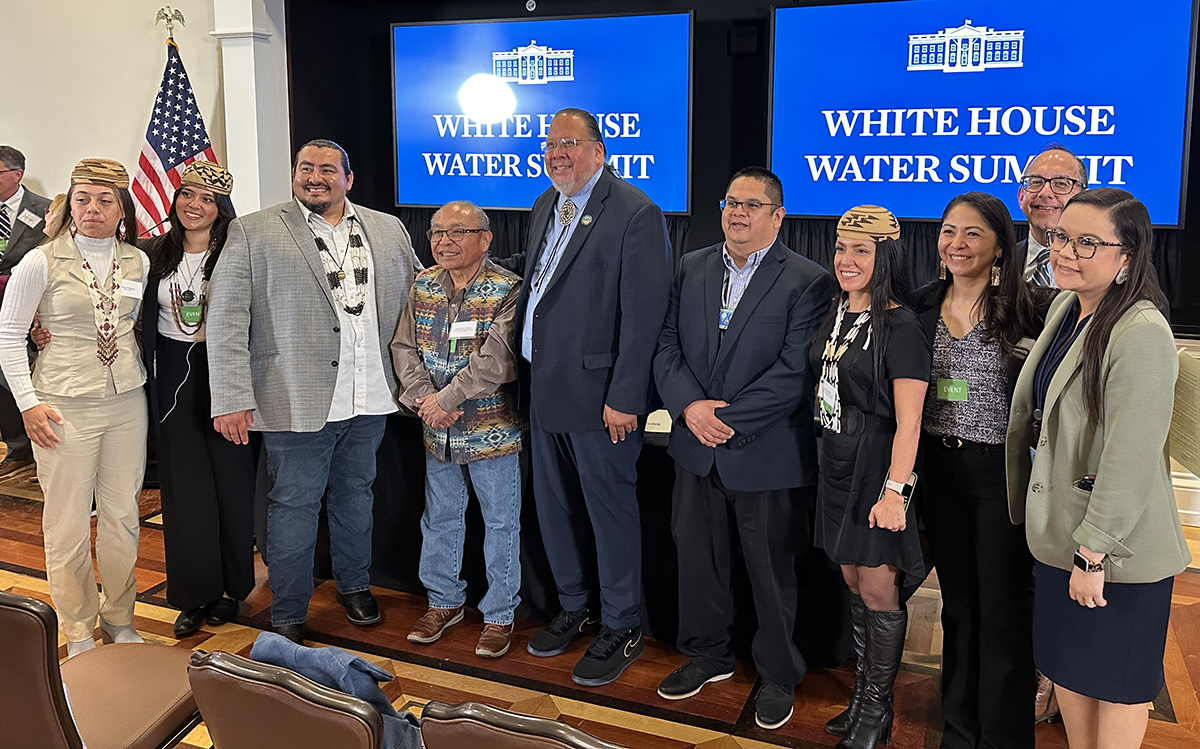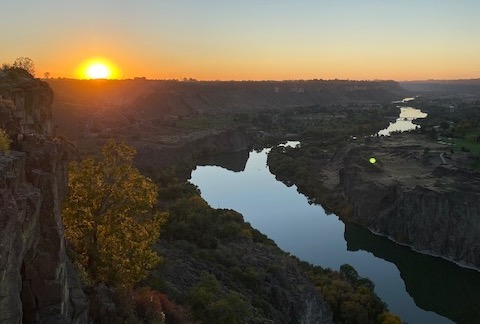
As a part of Native American Heritage Month, CRITFC Public Affairs Specialist Andrea Tulee (Yakama) sat down with Alyssa Macy (Warm Springs) who was recently honored as a recipient of Ecotrust’s Indigenous Leadership Awards and participated on the Tribal Women’s Panel at the R.U.N. in Unity Convening coordinated by the Nez Perce Tribe and hosted by Tulalip Resort and Casino.
Hi, Alyssa. Thanks for joining us. Can you introduce yourself to our readers?
My name is Alyssa Macy. I’m Wasco, Navajo, Hopi and I’m the CEO of Washington Conservation Action. I’m a citizen of the Confederated Tribes of Warm Springs, Oregon and I grew up on the Warm Springs Indian Reservation. I currently live on the Lummi Reservation, where my husband is from.
My first question I have for you is something I heard you touch on earlier and that was the topic of inherent rights. I believe this is a powerful thing to understand and I was hoping you could talk to our readers about its importance.
My significant other Dana and I, always talk about inherent rights. Which supersedes: inherent rights or treaty rights? His answer is inherent rights and I agree with him. We have rights that we are born with regardless of our blood quantum. If we are not enough to be enrolled in a particular tribe, it doesn’t prevent you from learning your songs, dancing, and practicing your culture. That is your inherent right.
He’s challenged me to change the way that I think about inherent rights. I’ve always been a strong voice for our treaty rights. When I was little my dad was always talking to me about our treaty. When I went into college, the concept of treaty rights was really an interest of mine and I studied Federal Indian Policy. I wanted to better understand what it means to us as Native people knowing that the Treaty of 1855 with the Middle Bands of Oregon established the Warm Springs reservation, and reserved rights that we had to hunt, fish, and gather at usual and accustomed places? It always felt like there was something more than that because treaties are a colonial thing. We never had to make treaties prior to 1855. So many colonial constructs and ideals have been forced upon us as a people. We have become a patriarchal society when we used to be a much more balanced people. As a woman, trying to find a place that feels respected and safe, it has been at times very challenging. I think that the only way forward includes letting go some of the things that we’ve adopted that don’t belong to us.
My hope lies within our unwritten law, tamanwit. These are teachings that one can only experience as opposed to learning them from a book. The lesson that I take away from that is ‘we want you to listen, we want you to learn the language, you don’t write it down’, and I’ve taken that to heart. You have to experience it. You have to be present for that. It’s within these testimonies that you’ll find the true nature of our people. Through these teachings we can help our next generations exercise their inherent rights. What we need to continue to focus on is providing a safe place and a loving place to learn.
I can say that without a doubt, your energy is so strong and beautiful, when you talked about some of the tools that help you deal with tough situations in life, I thought it would be great to share with our readers because we all go through stressful times. Can you talk about some of those?
I’m telling you having gone through cancer it really sucked and it brought me a lot of blessings. I got really clear on what was important. If tomorrow’s it, or next month is it, what’s the most important thing right now? I decided if I’m not in control of it, I’m not going to worry about it. I’m not going to be mad at people, hold grudges or do all that. Life is too short and there’s so much work to be done. We need to do the best that we can every day.
One thing that I would like to share is that I have almost two years of sobriety. One day I just said I’m done with this. There were choices I made in my life that were not great when I was drinking. I lost my dad to his drinking and driving. I lost friends to drinking and driving. I always felt like I could have a couple of drinks and drink socially. Sometimes I could and sometimes I couldn’t. I made the choice to quit, and I think that’s one of the best decisions I’ve made in my life. I’m now around a lot of people that don’t drink and we’re still having fun. We have to take an honest assessment of our relationships with things that alter our mind because when we alter our minds, we alter our ability to stay connected to our own spirit. If we’re not connected to our spirit, then we can’t be connected to the Creator. So, I quit that before I found out that I had cancer, and cancer and alcohol are related. I think it was the Creator helping me to prepare for what I was about to go through and I’m thankful for my sobriety. I still have fun and go out, but I don’t drink. There’s a lot of substance abuse in our communities and I really hope and pray that our communities can find their own paths to sobriety because it really matters.
The panel you participated on in the R.U.N. in Unity Convening was AMAZING. Hats off to you, Carol Evans (Spokane), Dr. Kim Hartwig, MD (Nez Perce), and moderator Kayeloni Scott (Spokane) for your powerful and inspiring testimonies on the panel “Tribal Women.” We witnessed something that was very beautiful and healing. Many in the audience were moved to tears from the words that were spoken. For anyone who listened to that presentation and for the ones who are reading this interview, what would your primary desire be for them to take away from the experience in learning about Indigenous women?
Being on the panel today was really powerful and what I want people to take away from that is that Indigenous women are badass and our voices are worth hearing. There’s a tremendous opportunity to bring women into leadership, and to mentor folks, and to get to them to a place where they can be successful. In order to do that, folks like myself gotta kick some doors open. It’s been really hard in this role because I can’t look around and see people who look like me. So, we’ve been hiring people to come work in our organization and that’s been great. That’s the type of commitment that the conservation and environmental community needs to do. They need to actively recruit tribal folks to serve on their boards, and they need to hire Native people in leadership positions because we know what we’re doing in these spaces.
We’ve been participating in the Green 2.0 report which is a national transparency report on hiring trends that looks at how many people of color you actually have. I want to see the whole State of Washington make that shift and its hard being out in the front because I feel like it’s not enough. But I do want people to know that Native women are doing incredible work and often under the radar, and without recognition, and sometimes not even being paid. So, you need to pay us, hire us, and put us in leadership positions because we will bring so much to the work.
And always remember that we have a great responsibility to ourselves and to the community to be in good relationship with one another. We’re family, we’re relatives; being in good relations with the land and to do the work that we’re doing with a good heart and a good mind.



